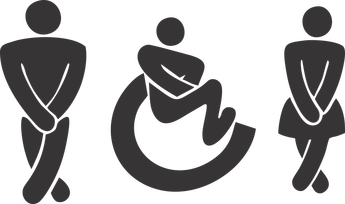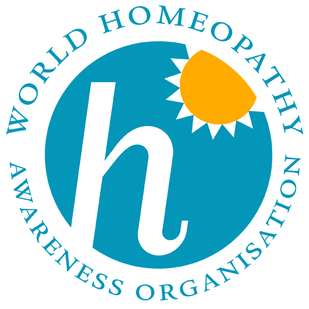|
Many people can have difficulty going when in a bathroom if other people are nearby. This is not uncommon. However paruresis, also known as shy bladder syndrome, is when shyness, embarrassment, or fear of being judged for not being able to urinate develops into a phobia or irrational fear.
There can be a spectrum of what is ok or not ok. One person is ok when there are empty spaces and there are large dividers between the urinals, but if there are no dividers or someone is right next to him than he can’t go. Or someone can go if they use a closed stall and don’t consider this as a problem. At the other extreme a person can only go when they are at home and no one else is in the house, or only if they use a catheter. Some people have learned to use a catheter during a long airplane trip, as there was no other way that they could take a 14-hour flight without intense discomfort and pain. Why do people develop paruresis? Why does someone have this? Good question! Certainly there is sensitivity, and a heightened awareness of one’s surroundings. Keep in mind that virtually no one can go when their body has shifted into the fight or flight mode. This is part of the biological design of mammals. When we are running away from a tiger the last thing we are going to do is stop and take a leak, we are just going to keep running like mad. Or we may freeze and every non-vital function is going to be put on hold as long as we are gripped by fear. This includes digestion, rational thought processes, and also the sphincters that are related to urination. For a person with paruresis, absolutely nothing they think or will to happen in that moment will loosen those sphincters! Not until the uncertainty passes and they can relax again. The main issues about shy bladder tend to be one of or a combination of the following:
Stigma and shame Unfortunately being teased or laughed at for this particular phobia is common. Many people think that they are the only person on the planet who has this thing, and that everyone else can go easily whenever they need to. Some will think, “Am I crazy. I don’t understand this.” Often they are too ashamed to ask for help and to reach out to friends or professional support. The result is that people with paruresis are often very isolated and don't seek help. Then the phobia can easily become the centre of their life. Social life and isolation You can see how much this might affect a person's life in terms of relationships, friendships, socializing, work, and career. There is a preoccupation with what you drink, especially before you leave the house, with where you are, and what options are available for using a bathroom. Every day is taken up with these kinds of thoughts. You change your habits and social behaviour in order to compensate. It is no longer easy to plan on going to a friend’s house, a party, or the theatre. The longer it goes on, the more the person can forget how it was before they were phobic and not realize how much the phobia is affecting their life and their choices. After time a person is controlled by his or her own fear and shame rather than being able to be spontaneous and social. What can you do to get better? Look up the definition for paruresis online understanding that around 7% of the population has this phobia. Google the International Paruresis Association in the United States and check out their workshops, support literature, forum and see if there is a support group in your city. Connect with other people with shy bladder, read books, consider doing the graduated exposure therapy practice in local malls. If there is nothing offered locally it is possible to start your own group setting up practice meetings and workshops. It is important to understand the cycle of anxiety and how that works. Homeopathy and phobias How homeopathy is different? Homeopathy is based on the principles of individualization, minimum dose and like cures like, and it uses a truly holistic approach. The aim of homeopathy is not to treat phobia, or shy bladder, or any disease diagnosis, but to explore the root source of symptoms and individual susceptibilities. Homeopaths don't separate the mind and the body into various parts and systems that are treated independently of each other. They see that all aspects of any person are dynamically interconnected and directly influence each other. Liver, nervous system, anger, ego, soul, any symptoms the person focuses on are considered during a homeopathic session. What is the expected process? The most common response to a well individuated remedy is a nearly immediate reduction of anxiety. We can start to feel whole, the root of the anxiety is addressed and we are able to start the healing process. Healing is not that different than being able to go to the bathroom, we can't heal when we never relax and we are anxious all the time! The rest of the process may take time, depending on each individual person, there is no way to know in advance. However, as the response to a core remedy is global, the results can be wide reaching and often unexpected! And no matter how challenging the process, it is certainly worth the investment if we can regain our life and joy of living.
0 Comments
10 GOOD REASONS TO USE HOMEOPATHY
1. NATURAL ACTION Homeopathy works by stimulating the body's own natural defence mechanism to promote health and to resist infection and susceptibility to disease. Although gentle, the results can be powerful and long lasting. 2. HEALTH & WELL-BEING Homeopathy improves health generally, rather than merely alleviating localized symptoms. It treats the whole individual, acting on the mental and emotional levels as well as the physical level, providing a balance in overall health and an increased sense of well-being and quality of life. 3. EFFECTIVE MEDICINE When used correctly, homeopathy can be an extremely effective system of medicine, providing long-lasting relief from many acute and chronic conditions and illnesses. 4. NO HARMFUL SIDE EFFECTS Homeopathic treatment offers a gentle and non-invasive approach to health, producing no toxic side effects, no dependency or addiction, and no withdrawal. 5. COST EFFECTIVE Homeopathic medicines are surprisingly inexpensive to purchase, especially when compared to over-the-counter and prescription drugs. 6. FAST-ACTING FIRST-AID RELIEF Homeopathy can be safely used at home or on the road to provide rapid relief for minor problems such as bruises, simple burns, sprains, insect bites, gastric upsets, etc. However more serious or long-lasting complaints should be treated by a qualified homeopath. 7. NOT TESTED ON ANIMALS Homeopathic medicines are tested only on healthy humans in order to determine the range of action of each remedy. 8. COMPLEMENTARY MEDICINE Homeopathic medicines can be used independently or along with conventional drugs and other therapies (with the full knowledge of your other healthcare providers). It can often alleviate unpleasant side effects of conventional treatments (e.g., chemotherapy). 9. ENVIRONMENTALLY-FRIENDLY Homeopathy has no adverse impact on the environment. There is not waste of energy or natural resources in the manufacturing process and no pollution of the water supply, oceans, or dump sites when used. In fact, homeopathy is the ultimate Green Medicine! 10. MEDICINE OF THE FUTURE Homeopathy is the second most widely-used system of medicine in the world. It is available in most countries and is gaining in popularity as an alternative to conventional medicine. From the Canadian Society of Homeopaths at www.csoh.ca |
Lauren TrimbleHomeopath and Holistic Practitioner. Archives
October 2022
|



